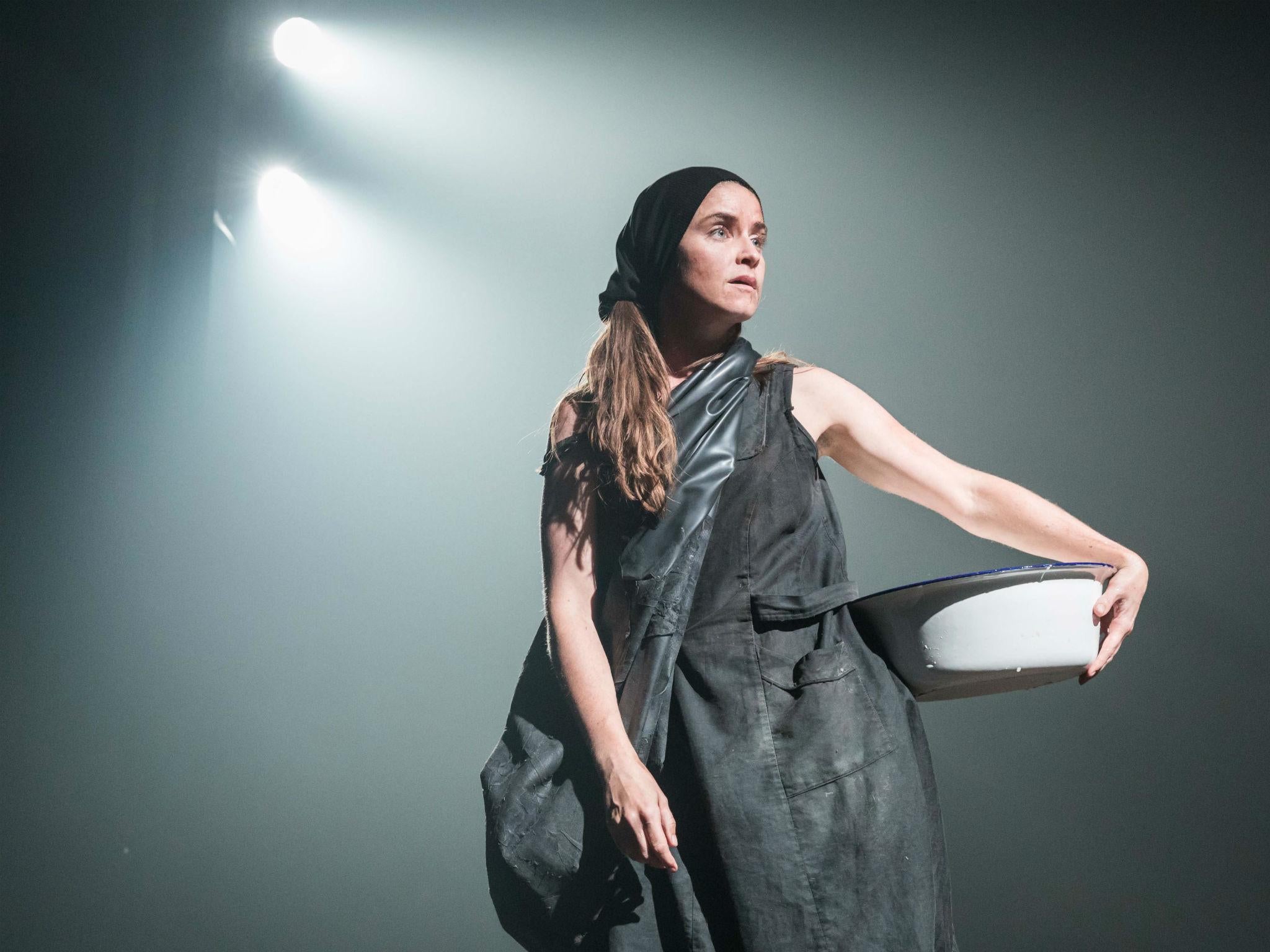Knives in Hens, Donmar Warehouse, London, review: Judith Roddy gives a splendid, emotionally daring performance
Yaël Farber is back to form directing this haunting modern classic by David Harrower after her version of the Salome story at the National was scuppered by a terrible text

Your support helps us to tell the story
From reproductive rights to climate change to Big Tech, The Independent is on the ground when the story is developing. Whether it's investigating the financials of Elon Musk's pro-Trump PAC or producing our latest documentary, 'The A Word', which shines a light on the American women fighting for reproductive rights, we know how important it is to parse out the facts from the messaging.
At such a critical moment in US history, we need reporters on the ground. Your donation allows us to keep sending journalists to speak to both sides of the story.
The Independent is trusted by Americans across the entire political spectrum. And unlike many other quality news outlets, we choose not to lock Americans out of our reporting and analysis with paywalls. We believe quality journalism should be available to everyone, paid for by those who can afford it.
Your support makes all the difference.Celebrated South African director, Yael Farber, took a rare tumble earlier this summer. Her version of the Salome story at the National displayed some of her gifts for creating a riveting ritual intensity but was scuppered by her own portentous script that kept the show wobbling on the verge of bathos. So it’s good to see her getting straight back to form with this hypnotically powerful account of David Harrower’s extraordinary debut play from 1995.
It’s as if Farber has direct access to the subconscious of this stark, strange three-hander that is set in an unspecified pre-industrial community and written in a terse, stripped-back dialect. For the piece works on us at a deep, primal level. It’s both the tense tale of an eternal triangle that leads to lust and murder and a dream-play, touched with poetic mysteries, as it charts the start of the emancipation through language of its young nameless female protagonist. The raw, elemental quality of her production underscores that journey’s mythic resonances.
With remarkable economy, the play – which runs for an unbroken 90 minutes – conjures up a dour rural world, governed by superstition, prejudice and drudgery. The Young Woman (Judith Roddy) works alongside her husband, Pony William, the village ploughman (Christian Cooke). It’s a physically passionate marriage but a brutish existence. He’s determined to set all of her boundaries; she’s literal-minded and frightened of flights of fancy, resisting his attempt to compare her to a remote field that he wants to plough (a simile that itself expresses his desire for dominance). “You’re like anything I want,” he informs her. “I’m like nothing but me,” she replies.
The play’s central preoccupation is with language and how our ability to attach names to things affects our perception of the world we know and the world we could know in all its multiplicity. For the ploughman, there’s no problem: a puddle is a puddle whether it is muddy or clear. His wife begins to feel a frustration with this, while still believing that “[God’s world] is there, in front of my eyes. All I must do is push names into what is there the same as when I push my knife into the stomach of a hen”.
Matters become more complicated when the ploughman forces her to convey grain to the local mill and she discovers that the outcast miller Gilbert Horn (Matt Ryan) – a man reviled by the superstitious villagers for taking a cut of their produce and for his supposedly magic powers – owns a pen and has the effrontery to be recording his experiences in a diary. She’s been rehearsed in rage against him by her husband and at first she covers her fear by venting this. But the sexual spark between them starts to flame when she overhears her husband in adultery.
Roddy gives a splendid, emotionally daring performance as the Young Woman – touching as she test-runs different verbs and adjectives in her struggling descriptive soliloquies and too pugnacious ever to be a conventional victim-figure on her sensitive path to self-realisation. Christian Cooke as the vehement, carnal William valuably offsets the suggestion of incipient violence with hints, at certain moments, that he is painfully conscious of world beyond his controlling limits. And Matt Ryan expertly conveys the note of challenging unconventionality that arouses his visitor. A giant grey millstone – looking like a barbaric instrument of torture – lours, in readiness, at the back of Soutra Gilmour’s striking set, with its earth-caked, cobbled court-yard and moss-fringed pool, seen under beautiful gradations of dimness and soft spillages of orange in Tim Lutkin’s excellent lighting design.
The mythic qualities of the play are reinforced by casting actors of a similar physical handsomeness as two men who are far from interchangeable – except (or especially not) in the dream sequences where the woman rolls out from under her spouse to lave in the flour poured onto the scene through the fingers of the miller. Highly recommended.
Join our commenting forum
Join thought-provoking conversations, follow other Independent readers and see their replies
Comments